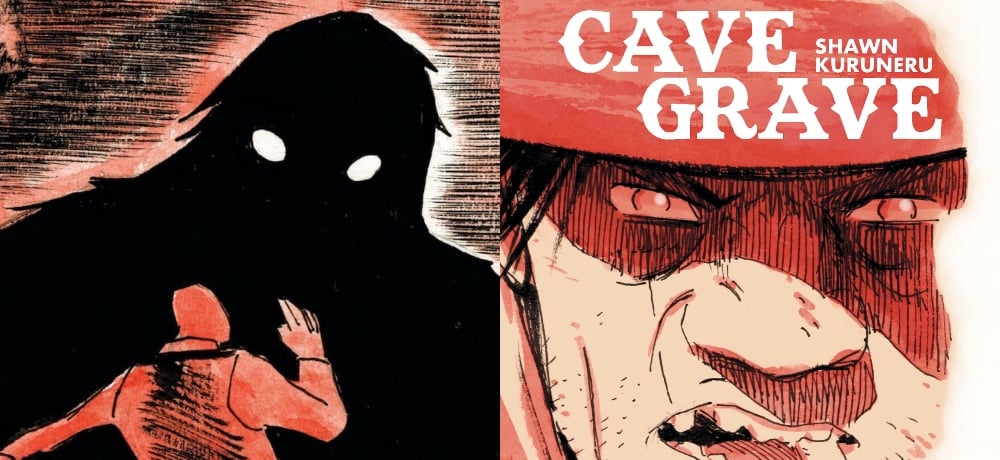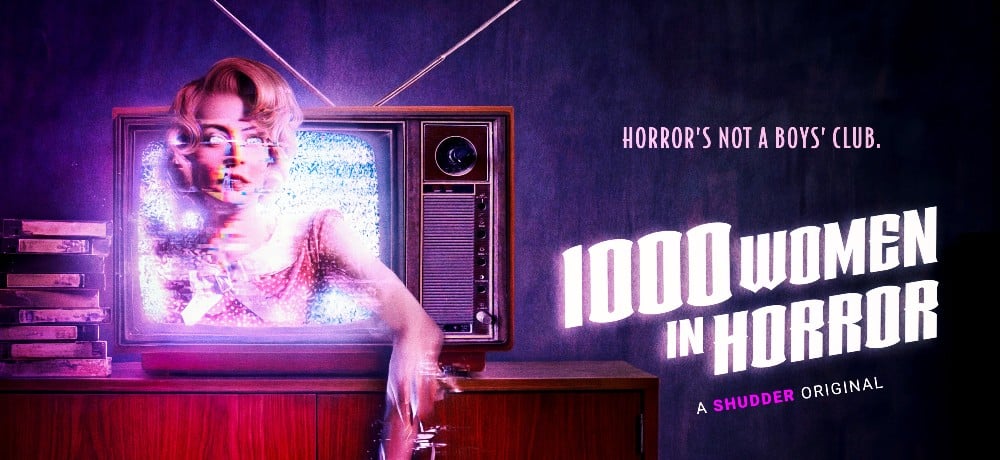





One of the more surprising films at Fantastic Fest that this writer encountered was Gille Klabin’s The Wave, which follows a corporate lawyer (played by Justin Long) who is tasked with finding loopholes in the insurance policies of the deceased, a soulless job that has left him feeling empty and looking for something more out of life. One night, he heads out for a night of partying with his pal (Donald Faison) and ends up ingesting a mysterious drug that transforms his life in unimaginable ways, setting him on a personal journey of discovery.
Director Klabin relies on his own unique and strong visual style as a means to make The Wave a standout effort all-around, which is why Daily Dead was excited to speak with the first-time feature filmmaker, with Long and The Wave’s writer Carl Lucas joining in on the conversation. The trio discussed the real-life inspirations behind the story, the heightened visuals of The Wave, and how much fun it was to collaborate with Faison as well.
So, first of all, let me just say that this movie is so much fun. I wasn't sure what to expect because the synopsis mentions existential life choices, so I wasn’t sure what that meant. But man, did I have fun.
Justin Long: It's hard to encapsulate and definitely a movie that makes it hard to write a synopsis for.
But I think that's what makes it cool. I know we've seen drug-fueled situations run amok stories in LA before, but nothing like what we see in The Wave. Can you guys start off by talking about the approach to this story and where it all came from?
Carl Lucas: So, the original script was conceived after I met Gille. I was producing films at the time and doing a lot of independent film work, and you're always struggling with choices that directors make or the different films that you're making. We went to a party together, because he was a friend of my girlfriend, who is now my wife, and he showed me some of his music videos. They were so visually stunning and aggressive and I remember having this thought about wanting to do a low-budget movie with a very strong visual style, it might be possible to make it without it costing millions and millions of dollars. We just have to mix things together that you've never seen before. And I knew just from his visual style that I wanted to work with him. And as we got to know each other over two years, we became very close friends.
The story for The Wave was real personal for me, because I had a family member who had died when he was 37. He was a firefighter and the insurance company went digging into his medical history and found out 10 years ago that they had discovered a small heart murmur and that he'd been prescribed a pill that made him nauseous, so he couldn't do his job. They ended up literally writing the word suicide on a document and mailing it back to his family and explaining that they were not going to pay out any of the life insurance. They had a house that wasn't finished. His daughter was about to graduate from high school. It was awful.
So Gille, from your perspective, because you are marrying this unique visual style with a story grounded in reality, what are the inherent challenges to finding a balance to marrying those approaches?
Gille Klabin: I'm a huge nerd. I come from the world of music videos, so I relish the opportunity to take everyone on a ride. And that's all I want to do with this film. The idea we had with The Wave is that we are all in that man's shoes. We are all the every man trying to go through life, and I wanted us visually and kinetically to be moving and flowing with them. So, when Frank's moving through the house, the reason we kept it one shot is because I wanted to have the audience riding the audience with him on a visual level through this roller coaster. So that's what formed the transitions. That's what the formed the moments of the VFX. That what's formed all of those unexpected cuts. It all just flowed really well.
I also tried to make replications of psychedelic experiences I've had, and try to make visuals that audience members who were in the know would recognize and take them back to that same psychological state when you take psychedelics and you'd have to re-perceive your reality. We're both looking at the same pair of sunglasses, but I'm seeing something different from this angle. And that's really the fundamental lesson of psychedelia is that it is the same, but it's different. That's what I wanted to give audiences who weren't familiar with the experience to experience the sheer awe inspiring beauty of what has tripped people out before.
Justin, can you talk about diving into the character Frank? He's somebody we relate to, even though he has a job where he has to do shitty things. But I think there's also some subtle stuffed in too, like the scene when he’s sitting in the house with his wife before he goes out and even though he’s got a good job, they're talking about moving all these things around just so they can pay our mortgage or buy this or that. That moment was really interesting to me because you'd think a lot of people might've learned something from the 2008 crash. But I don't think we have.
Justin Long: Oh, for sure. It's the result of the system that we live in, and everyone's struggling and they're being taken advantage of by these corporations and by the powers that be. I think Frank is just trying to rationalize what so many people have done, including myself. I could definitely relate to that jerk. I don't think he's a bad person, I just think he's made choices in order to get the things that he thinks he needs and he's been told by society that he needs, and I can certainly relate to that.
It was an easy thing to jump into and connect with. And I've also had one, in particular, very frightening drug induced experience, against my will. It was a really scary thing. I hate to be cryptic about it, but I've talked about it before and it was something that I could relate to that kind of nightmarish aspect of it too. Not to the degree to which Frank goes through, fortunately. For me, there were elements of that trauma that still lived in me that I felt might be interesting to explore.
And just from an acting point of view, the dialogue was written in such a way that if it flowed; it was the way people talk. Oftentimes you read, especially a story like this, it's usually a story over dialogue. Meaning that the stories, and the plot, and twists, and the bad guy, all those elements exist, but it's not necessarily the way people talk. And this was a nice marriage if the two. It was a unique, interesting story, but it was also, as an actor, the first time you're reading it, I was able to imagine myself saying those words and people saying them to me. That might sound trite, but it's actually a really rare thing to read in a script like that.
You and Donald are great together in this. Did you guys get a lot of time ahead before you started shooting to work on that back and forth? Or did it all come naturally?
Justin Long: I've known Donald for a very long time. Whenever we'd see each other, back when we used to go out in Hollywood during the mid-2000s, every time we saw each other, we just had the best time together. We did a Steve Martin play together too, and I just love him. He’s just one of those special people that doesn’t come along very often. He's infectious to be around and just the warmest, funniest guy you’ll ever meet. So no, we didn't really need any time to get that chemistry going, because we already had it. He is just the best.